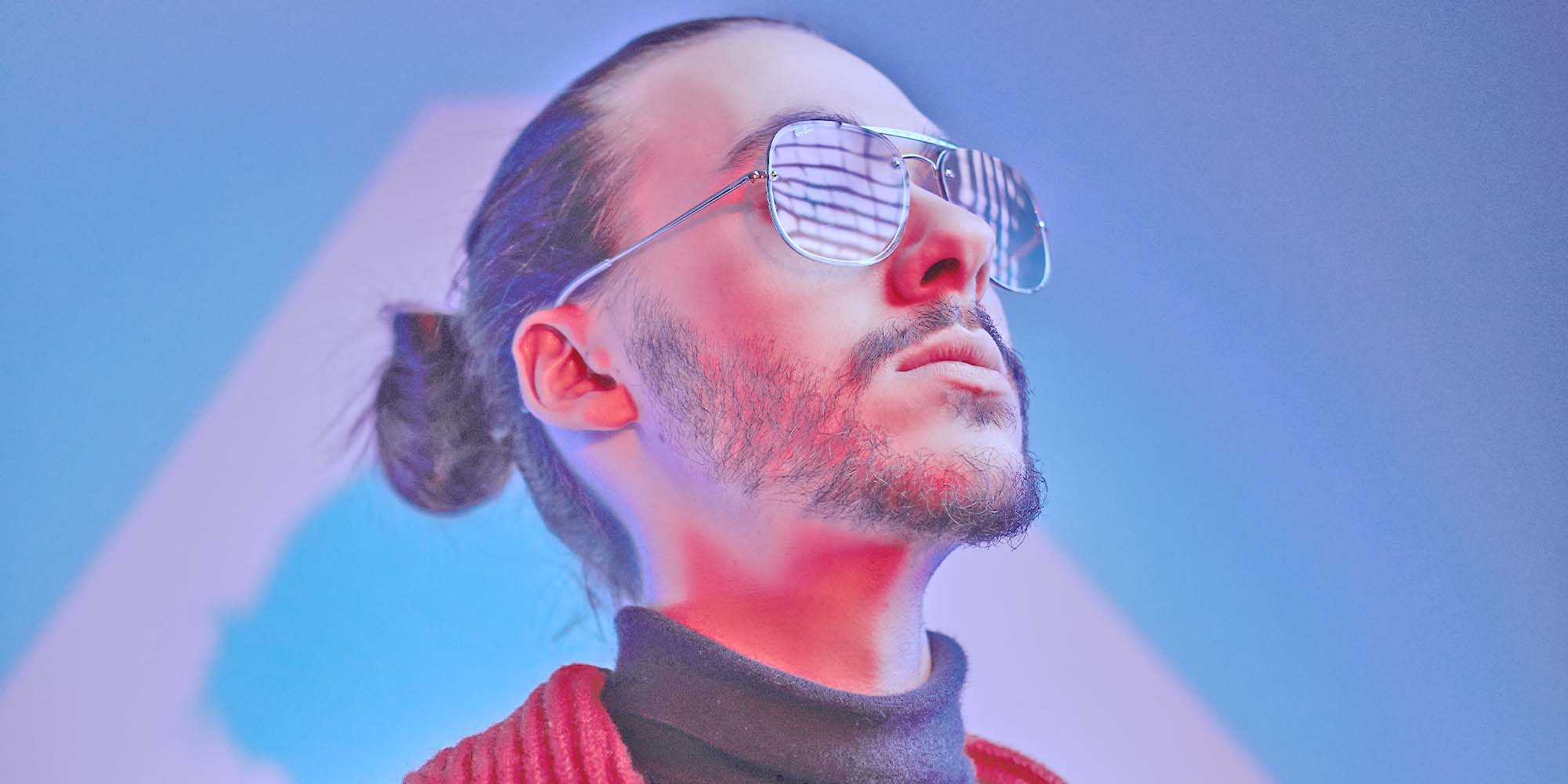-
 play_arrow
play_arrow
DisnDat HITZ DisnDat HITZ
-
 play_arrow
play_arrow
Warlando Hitz Warlando Hitz
-
 play_arrow
play_arrow
DisnDat Tunez Reggae,Dancehall and Afro Beats


Every Black wrestling fan of this modern era remembers where they were on April 7, 2019. I certainly do. After spending a weekend running around New York City from WaleMania to WrestleMania Axxess and NXT Takeover: New York, it was finally time for the biggest show of the weekend – WrestleMania 35.
I wasn’t in the building, though. A week of fighting with Ticketmaster and watching resale prices skyrocket meant I had to tap out on getting a ticket. (An issue that, five years later, is still a problem, by the way.) But missing the event? Not an option. Kofi Kingston was fighting for the WWE Championship.
Kofi Kingston is a character who can summarize the shift in direction for Black wrestlers over the last decade. On his initial debut on the now-defunct television show ECW on SyFy, Kofi Kingston was a fun-loving, thunder-clapping Jamaican pro wrestler who won over crowds with moves like “Trouble in Paradise” and the “Boom Drop.” He even had a signature call from then-commentator Mike Adamle, who excitedly declared he was “Jamaican me crazy!” And yes, it was as cringeworthy then as it is now. Unfortunately for history’s sake, Kofi Kingston wasn’t actually Jamaican (sorry if you’re learning this for the first time, but the accent should’ve definitely tipped you off).
Eventually, WWE dropped the gimmick, Kofi Kingston dropped the accent, and he started being billed from Ghana, West Africa — his actual birthplace. For over a decade, Kofi was a fan favorite, always in the mix for the perennial midcard opportunities like the Intercontinental and Tag Team championships, but never really seen as a top guy. Then, after years of grinding and winning over the crowd, the stars finally aligned for what we now call KofiMania.
That night, he faced Daniel Bryan, the smug, eco-friendly WWE Champion who was dead set on crushing his dreams. And in one of the most emotional moments in wrestling history: Kofi won the big one. I firmly remember the moment standing in front of my television, with a tear in my eye, watching history happen as his New Day stablemates Big E and Xavier Woods raised him up on their shoulders. They were also emotional. I was watching history happen, witnessing only the second Black WWE Champion in the company’s then-66-year history. Black wrestling fans everywhere were feeling the exact same way. It wasn’t just about Kofi — it was about all of us. For so long, WWE had rarely let Black wrestlers be the face of the company, and now? The glass ceiling had been shattered.
And that win wasn’t just a one-off. Over the next few years, Bobby Lashley, Big E, Bianca Belair, Mercedes Moné and Swerve Strickland all followed. Wrestling has always been a reflection of culture, and just like award shows and major industries were finally acknowledging diversity, wrestling was shifting too. But it wasn’t always like this.
Wrestling has always been a spectacle, but for Black wrestlers, that spectacle came with a catch. For decades, their place in the industry was defined by gimmicks that weren’t just outdated — they were outright damaging. If you were a Black wrestler in the ’80s, ’90s, or even the early 2000s, chances were you weren’t stepping into the ring as a fully realized character. You were stepping into a trope.
Kamala was a “savage” from Uganda, presented as an unthinking brute who slapped his belly and needed a white manager to speak for him. The Godfather, who once played the ridiculous voodoo priest Papa Shango, was rebranded as a flamboyant pimp leading a parade of women to the ring. Cryme Tyme was a two-man crime wave — stealing, looting, scamming and playing up every gangsta movie cliché imaginable. The formula was simple: Black wrestlers weren’t booked as serious competitors; they were side attractions, comic relief, or threats that needed to be tamed.
These gimmicks worked in the worst way possible. Fans bought in. They cheered, they laughed, they played along. But that buy-in came at a cost. Wrestling is a business of perception — who looks like a star, who looks like a champion. And for decades, the message to Black wrestlers was clear: You could be on the card, but you’d never be the guy.
And yet, despite the limitations, some Black wrestlers forced the industry to take them seriously. They weren’t just gimmicks, they were stars. Take Junkyard Dog (JYD) for instance. In the territorial days of wrestling throughout the ‘70s and ‘80s, when Black wrestlers were often booked as secondary attractions, JYD became the main event draw in Mid-South Wrestling. Fans — Black and white — packed arenas to see him. He wasn’t a shucking, jiving caricature; he was a powerhouse with undeniable charisma.
Then came Ron Simmons. By the early ’90s, WCW gave him the moment WWE (then WWF) never would: in 1992, he became the first Black world champion of a major wrestling promotion. It was a landmark win, but it wasn’t a full culture shift. WCW never quite built the company around Simmons, and he eventually left for WWE, where he found success — but under another questionable gimmick: Faarooq, first as a Roman gladiator (for some reason) and later as the militant leader of the Nation of Domination. The Nation of Domination was one of WWE’s first attempts to present Black wrestlers as more than stereotypes, though still through a controversial militant lens. While the Nation played into certain tropes, it also provided a platform for stars like D’Lo Brown, Mark Henry and, most notably, The Rock.
The conversation around The Rock’s Blackness has always been complex. His Samoan heritage is often front and center, but make no mistake: Dwayne Johnson is a Black man who grew up in a Black wrestling family. His father, Rocky Johnson, was a trailblazer in his own right, one-half of WWE’s first Black tag team champions with Tony Atlas. When The Rock debuted in WWE as the smiling, blue-chipper babyface Rocky Maivia, fans rejected him. Hard. But when he flipped the switch, embracing his arrogance and natural charisma, he became the biggest star in wrestling history.
The Rock wasn’t just a Black wrestler who succeeded — he transcended wrestling itself. He was undeniable, to the point that WWE didn’t even have a choice but to build the company around him. But even with all his success, his rise didn’t immediately open doors for other Black wrestlers. WWE was willing to push The Rock as the guy, but they weren’t yet willing to invest in Black talent as a whole.
And then there’s Booker T, arguably the most significant Black wrestler of the late ’90s and early 2000s. His story wasn’t just about breaking through wrestling’s barriers — it was about breaking through life’s. Before wrestling, Booker had a troubled past, even serving time in prison. Wrestling became his way out. He started in Texas’ independent scene before getting his big break in WCW alongside his brother, Stevie Ray, as Harlem Heat — a team that, yes, leaned into stereotypes but also dominated WCW’s tag team division.
But Booker wasn’t just a tag wrestler — he had it. The charisma, the in-ring skill, the ability to connect with a crowd. And as WCW’s popularity and status in the business began to collapse in 2000, he emerged as WCW Champion — one of the final phases of the company before WWE bought it. When he made the jump to WWE, it wasn’t an easy road. He endured more questionable booking, including the infamous Triple H storyline that suggested he wasn’t “champion material” leading to a gut-punching defeat at WrestleMania XIX, but he kept proving people wrong. By the time he reinvented himself as King Booker, he wasn’t just a great Black wrestler — he was one of the best wrestlers in the world. Period.
For Black women in wrestling, the climb has been just as steep — if not steeper. Historically, Black female wrestlers were either sidelined or forced into limiting roles. Sapphire, best known as Dusty Rhodes’ manager in the late ’80s, was more of a novelty act than a wrestler. In the ’90s, Jacqueline shattered some barriers — she was a fierce competitor who won the WWE Women’s Championship twice and even held the men’s Cruiserweight Title, but she was rarely treated as a top star. Jazz, a powerhouse in the early 2000s, brought legitimacy to the women’s division but never received the same push as her white counterparts.
During the 2000s, TNA (Total Nonstop Action) emerged as an alternative pro wrestling promotion to the WWE product and Awesome Kong (Kia Stevens) became a trailblazer for Black women in wrestling. Upon arrival, she quickly established herself as a dominant force in the Knockouts division, breaking away from the typical “diva” stereotypes that the industry clung to at the time. Kong’s intense, powerhouse style and commanding presence gave her credibility. She became the first Black woman to hold the TNA Knockouts Championship, reshaping the narrative for women of color in the industry. Kong’s success marked a significant step forward, but one that wouldn’t fully turn the tide for Black women.
By the late 2000s, Alicia Fox became the first Black woman to win the Divas Championship – the company’s third Black women’s champion in its history and roughly the only one for about a decade. But her reign was brief, and she was often cast in chaotic, underdeveloped storylines. Meanwhile, The Funkadactyls (Cameron and Naomi) were introduced as dancers for Brodus Clay. Though Naomi would later break out, this period underscored WWE’s reluctance to push Black women beyond sidekick roles. Before the coining of the Women’s Revolution, Black female wrestlers had the talent, but rarely the opportunity to be seen as legitimate headliners.
Over the last decade, the wrestling landscape has undergone a major shift. If there’s a term to define this era for Black talent, it’s The Authentic Era. Fans and wrestlers from marginalized communities began rejecting the old idea that their heroes had to be limited to stereotypical roles. Culturally, the broader push for diverse representation in entertainment, sports, and beyond fueled the demand for more authentic, multifaceted portrayals of Black athletes. Movements like Black Lives Matter and the fight for racial equity sparked conversations about systemic inequality, leading to a demand for more meaningful representation both in and outside the ring.
Enter wrestlers like Bianca Belair, Mercedes Mone, Carmelo Hayes, Trick Williams, Shane “Swerve” Strickland, The New Day, Naomi, Jade Cargill, Oba Femi, Ricochet, Willow Nightingale, just to name a few. These individuals didn’t just break the mold; they shattered it. As previously stated, Kingston’s victory at WrestleMania 35 — becoming the second-ever Black WWE Champion — became a major inflection point that pointed out that change was coming throughout the entire industry. From there on, the talent kept rolling. Bobby Lashley and Big E followed in Kofi Kingston’s footsteps and became WWE Champions. Years later, Swerve Strickland would make history by becoming All Elite Wrestling’s first-ever black AEW Champion. Mercedes Mone (FKA Sasha Banks) became one of the pillars of the industry’s Women’s Revolution, becoming a six-time World Champion in WWE and is currently reaping the benefits as AEW’s TBS Champion.
Bianca Belair is arguably the most successful Black wrestler of this era — man or woman. Born in Knoxville, Tennessee, she was a standout track athlete before transitioning to wrestling. From the moment she stepped into WWE, her presence was undeniable — athletic, charismatic and a natural performer. Her breakout moment came at WrestleMania 37, where she defeated Sasha Banks in a historic main event, becoming SmackDown Women’s Champion. The victory was more than just a title win; it was a cultural milestone — two Black women headlining WWE’s biggest show for the first time ever. She embodies everything the modern Black wrestler represents: authenticity, excellence and the ability to transcend stereotypes. In an era where representation matters more than ever, Belair has become the gold standard for what’s possible in wrestling today.
This era of authenticity in wrestling has brought back both lapsed and new Black wrestling fans for its powerful representation. It’s also allowed a stronger marriage of wrestling and hip-hop culture. Wrestling and hip-hop have always shared DNA — bravado, storytelling, spectacle. But over the last decade, that connection has become undeniable. Rappers aren’t just fans anymore; they’re part of the industry. Wale turned WaleMania into a staple of WrestleMania weekend, a celebration of Black wrestlers and hip-hop culture under one roof. Westside Gunn made wrestling references a signature of his music, launched 4th Rope as a hub for wrestling, art and culture, even with live wrestling events.
The marriage also inspires the community. Look at The Wrestling Club, founded by teacher and wrestling fan Victor Perry, where young Black students come together to celebrate wrestling in a space that embraces their passion. The club has gone viral for notable moments meeting Mercedes Mone, Big E, Titus O’Neil, Cedric Alexander, Swerve Strickland, Keith Lee, Willow Nightingale, Isiah Kassidy and Marq Quen among others, who see themselves in the community they’ve helped revive.
Wrestling didn’t change on its own — fans forced the issue. The industry had no choice but to evolve as culture moved past the tired stereotypes that once defined Black wrestlers. Hip-hop embraced wrestling, wrestlers embraced hip-hop, and together they built a movement. Now, Black champions aren’t anomalies; they’re standard-bearers. The New Day, Bianca Belair, Swerve Strickland — these aren’t just success stories. They’re proof that the old playbook doesn’t work anymore. The next generation, kids in The Wrestling Club and beyond, won’t have to squint to see themselves in wrestling’s biggest moments. They’ll just watch — and know they belong.
From Your Site Articles
Related Articles Around the Web
Written by: jarvis
Similar posts
-
Recent Posts
Recent Comments
Featured post
Latest posts
Current show

Art Of Gossip
Monday and Friday at 23:00
For every Show page the timetable is auomatically generated from the schedule, and you can set automatic carousels of Podcasts, Articles and Charts by simply choosing a category. Curabitur id lacus felis. Sed justo mauris, auctor eget tellus nec, pellentesque varius mauris. Sed eu congue nulla, et tincidunt justo. Aliquam semper faucibus odio id varius. Suspendisse varius laoreet sodales.
closeUpcoming shows

Sick Beats
Dj Smash will make you move
7:00 am - 8:30 am
Sound Seduction
Presented by Marika Love
8:30 am - 9:00 am
House Of Fashion
With Veronica and Nina
9:00 am - 12:00 pm
Art Of Gossip
Monday and Friday at 23:00
12:00 pm - 5:00 pm
Pop’n Roll
Mixed by Rebecca Lost
5:00 pm - 9:00 pmChart
-

Art Of Gossip
Monday and Friday at 23:00
For every Show page the timetable is auomatically generated from the schedule, and you can set automatic carousels of Podcasts, Articles and Charts by simply choosing a category. Curabitur id lacus felis. Sed justo mauris, auctor eget tellus nec, pellentesque varius mauris. Sed eu congue nulla, et tincidunt justo. Aliquam semper faucibus odio id varius. Suspendisse varius laoreet sodales.
close Chart
-
Top popular

Female Corrections Officer Who Got Smashed In Front Of 11 Inmates… Wants You To Bail Her Out! (6 Sec IG Message)

Music, Economics, and Beyond

Tragedy Unfolds At Rock Hill Smoke Shop! Aftermath Shows Witness Fighting To Save One Survivor After 2 Fatally Shot & 1 Critically Injured Inside

Geez, Wait Till You See It From The Back: Recoil Like A Mac10 With No Attachments!

Stainless Steel Juicer – Making Juicing Fun And Easy
Quick links
Our radio.
COPYRIGHT All rights reserved.
Site Design by Superior Business Solutions.
















